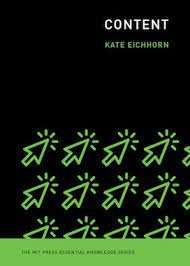ORDERS TO KILL: THE TRUTH BEHIND THE KILLING OF DR. MARTIN LUTHER KING Jr. - WILLIAM PEPPER
I’ve been asking Boomers recently about their memories of the 4 major 60’s assassinations. Typically, remember that Boomers are definitionally YT (explanation in another essay on this site), they don’t remember the Malcolm X killing, the JFK one made a big impression since they were so young, the King assassination is remembered as a huge blow and scary given the riots afterwards and the RFK killing is seen as sort of the end of the hopeful part of recent American history. That’s a lot of high profile deaths in 5 years, it clearly fucked them up as a generation and they and we haven’t really processed what it all means. Especially given how fishy and suspicious each of these deaths were. For the record, I don’t believe the official account of any of these killings. At this point the FBI and NYPD has admitted that they helped frame 2 people for the X killing (which obviously implies that they were covering something else up), the JFK and, to a lesser extent, RFK killings have spawned an enormous corpus of work in all media trying to get to the bottom of what actually happened with those deaths. At no point has a majority of American believed the official JFK story (tellingly, college educated YTs are the only demographic wherein over 50% of those polled believe the official story) and there’s a general consensus that looking into any of these event with any degree of seriousness and open-mindedness leads one to believe something besides the government version. The MLK killing is surprisingly less remarked upon. I’ve never met a Black person who didn’t believe that the government had something to do with it while almost no YT people I know have thought about it very hard. This is interesting given the mirrored paths MLK and JFK’s legacies have taken since the 60’s. On the JFK side, he was beloved when alive and seen as genuinely hopeful and since his death there has been a clear propagandistic effort, often by folks on the Left (Chomsky is a great example of this), to downplay his importance and make it seem like there would be no reason for the deep state to kill him since he was just a war-mongery and savage as them. I’m no lover of JFK but this view is ahistorical, stupid and clearly a tool to deflect. King on the other had was largely disliked by YT Amerika at the time of his death but has gone on to become one of the most widely praised and beloved figures in American history. Racist politicians now have to pretend to agree with him (they love the “content of his character” line), he has a Federal holiday and it would be political suicide to suggest that you disagree with him in any way, even if someone who’s dedicated your political career to erasing his legacy. It’s a remarkable transformation and one that is particularly interesting given how little national interest there is in his assassination and the government’s clear role in it. Pepper is a lawyer who spent decades trying to get the truth about the King killing out there. He successfully sued Lloyd Jowers, a Memphis restaurant owner who was, by his own admission and reams of evidence, involved in the conspiracy to kill King and put on a TV trail for the patsy, James Earl Ray, who never got a real trial (the guilty plea is addressed and explained at length in the book), and he has compiled his decades of digging on this issue in this book. It’s pretty amazing. He amasses a tremendous amount of information to show that the official story isn’t true. I won’t recap it all here, you should look into the issue yourself and ask if a government that admitted to illegally wiretapping, blackmailing and attempted to induce suicide in King would really balk at killing him, especially after he began to broaden his critique of America, the Vietam war, and capitalism. The book slightly suffers from CHAOS syndrome where a lot of it is about his quest to figure out the information and put on the TV trial rather than just giving us the information. Likewise, he might be wrong about some of the specifics of his version of the killing (he learned later that one of the people he suggested was involved wasn’t dead like he originally printed and vehemently denied the role Pepper assigned him), I’m sure he was fed misinformation and was fucked with while writing and investigating this. But, to me, that doesn’t really matter. He doesn’t need to solve the crime perfectly himself, he merely needs to show the official version isn’t true and show us some version of the truth. I think he’s done that. I think it’s insane that we don’t care enough as a country to solve this crime for real. I think it’s insane that this death isn’t seen as equally or more suspicious than the Kenndy killing. I think it’s insane that we let politicians and especially the FBI pretend to mourn and miss Dr. King when they very clearly were involved in his death. Something changed permanently and for the worse in Amerika with his death and it isn’t getting better until we address it.



















